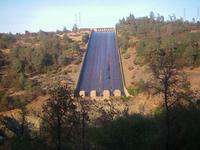-
Scrapping sea level protection puts Australian homes at risk
As the science on the coastal impacts of climate change gets stronger, the protections for Australia’s coastal communities are getting weaker. Along the eastern seaboard of Australia, where most Australians live, state governments are relaxing their policies and largely leaving it to local councils to decide if homes can be built in low-lying areas.Over the past fifty years, there have been twenty-five national inquiries and reports into coastal management. Those inquiries have overwhelmingly come to the conclusion that rather than leaving it to local councils, Australia needs one set of clear, national guidelines on coastal development and infrastructure. That is the opposite of what we are now seeing around Australia, with a mish-mash of different rules in different states. If that continues, everyone will pay.
-
-
Food security and self-provision of major cities
Wealthy capital cities vary greatly in their dependence on the global food market. The Australian capital Canberra produces the majority of its most common food in its regional hinterland, while Tokyo primarily ensures its food security through import. The Copenhagen hinterland produces less than half of the consumption of the most common foods. For the first time, researchers have mapped the food systems of capital cities, an essential insight for future food security if population growth, climate change, and political instability will affect the open market.
-
-
Global map predicts giant earthquakes
Researchers have developed a new global map of subduction zones, illustrating which ones are predicted to be capable of generating giant earthquakes and which ones are not. The research comes nine years after the giant earthquake and tsunami in Sumatra in December 2004, which devastated the region and many other areas surrounding the Indian Ocean, and killed more than 200,000 people.
-
-
New Jersey shore to face unprecedented flooding by mid-century
Geoscientists estimate that the New Jersey shore will likely experience a sea-level rise of about 1.5 feet by 2050 and of about 3.5 feet by 2100 — 11 to 15 inches higher than the average for sea-level rise globally over the century. That would mean, the scientists say, that by the middle of the century, the one-in-ten year flood level at Atlantic City would exceed any flood known there from the observational record, including Superstorm Sandy.
-
-
No need to worry about getting fried by gamma ray burst

If recent news that University of Alabama in Huntsville (UAH) researchers observed the largest gamma ray burst ever has you nervous about getting blasted into extinction by a massive burst from space, the UAH researchers have good news. The chances of Earth being fried by a burst are exceedingly rare.
-
-
Sea-level rise to drive flooding regardless of changes in hurricane activity
Clamor about whether climate change will cause increasingly destructive tropical storms may be overshadowing a more unrelenting threat to coastal property — sea-level rise — according to a team of researchers. Since 1970, more than 60 percent of all economic losses — about $400 billion — occurred in the North Atlantic, even though it is one of the least active basins for hurricanes.The scientists say accelerated sea-level rise certainly will increase the flooding and property damage triggered by tropical cyclones — commonly known as hurricanes in the Atlantic and Northern Pacific — but predicting where, how often, and how powerful these storms will be when they make landfall is full of uncertainty.
-
-
Feds, Calif. disagree on seismic safety of U.S. tallest dam

At 742 feet, Oroville Dam in Oroville, California is the tallest dam in the United States. It is 45-year old, and federal inspectors say it needs a comprehensive earthquake safety assessment. The California Department of Water Resources (DWR) insists that the dam, which holds 3.5 million acre-feet of water, is safe, and that such an assessment would be an “unjustified expense.” David Gutierrez, chief of California Division of Safety of Dams (DSD), says his agency will decide in January 2014 whether earthquake assessments will be made, but notes: “Oroville is not one that keeps me up at night from a seismic stability standpoint.”
-
-
Virtual wall to build invisible barrier for oil spills
The outer shell of a droplet of oil on a surface has a thin skin which allows it to hold its shape like a small dome; this shell is referred to as the liquid’s surface tension. Now, researchers have developed a technique to form a virtual wall for oily liquids that will help confine them to a certain area, aiding researchers who are studying these complex molecules. This development will have future implications in the guided delivery of oil and effective blockage of oil spreading.
-
-
Humans threaten wetlands' ability to overcome sea level rise
Left to themselves, coastal wetlands can resist rapid sea level rise. The reason: an intricate system of feedbacks which make wetlands remarkably good at building up soils to outpace sea level rise. Humans, however, could be sabotaging some of wetlands’ best defenses, according to results of a new study. The study examines two questions: when do wetlands reach their limit, and how are humans lowering that point?
-
-
Earthquake early warning? There’s an app for that
Researchers from the University of California have unveiled a smartphone app designed to provide users an early warning of approaching earthquakes. Based on the proximity of the user to the earthquake’s epicenter, the app will provide alerts of between a few seconds and one minute before a tremor hits.
-
-
Early warning system to detect abrupt climate change impacts
Climate change has increased concern over possible large and rapid changes in the physical climate system, which includes the Earth’s atmosphere, land surfaces, and oceans. Some of these changes could occur within a few decades or even years, leaving little time for society and ecosystems to adapt. A new report from the National Research Council states that even steady, gradual change in the physical climate system can have abrupt impacts elsewhere — in human infrastructure and ecosystems for example — if critical thresholds are crossed. The report calls for the development of an early warning system that could help society better anticipate sudden changes and emerging impacts.
-
-
Key to protecting Earth from asteroids: time

Scientists say that humanity can address the threats from asteroids of any size if given enough time and notice of the asteroid’s existence and trajectory. Even an asteroid the size of the 10-kilometer-wide space rock which scientists hold responsible for the extinction of dinosaurs sixty-five million years ago, can be destroyed, although it would take hitting the asteroid with multiple spacecrafts over a period of several decades.
-
-
Weather risk management should be part of companies’ overall risk management
Volatile weather activity is increasing around the world. While extreme events such as typhoon Haiyan in the Philippines or flood Cleopatra in Sardinia may capture the headlines, minor fluctuations in expected weather can have big impacts on business performance across a wide range of industries. A new report focuses on the growing importance of weather risks for businesses, highlighting the economic impact of fluctuating weather conditions and how companies can protect themselves, using new approaches to “weather risk management.” Weather risk management products are already widely used in the United States, where they have become more readily accepted as a standard feature of companies’ overall risk management.
-
-
Deflecting asteroids to avoid Armageddon

It sounds like the script for a Hollywood film: a giant meteorite from outer space heading straight for the Earth and threatening the destruction of mankind. Yet such a scenario does represent a real threat to our planet, as researchers reckon that we can expect an asteroid to collide with Earth every few hundred years. In real life, though, nobody wants to rely on a rescue plan hastily improvised at the last minute. Scientists with the European-funded research project NEOShield are working to develop concepts designed to help avert these impacts and to alter asteroids’ orbits as they race toward Earth.
-
-
Helping farmers cope with climate change is big business
Monsanto estimates there is a $20 billion market for employing massive data analysis to provide weather forecasting and crop-growing advice tailored to individual plots of land. With a $300 billion agriculture industry in the United States exposed to climate change, predicting the effects of warming temperature is critical to the industry. Monsanto has recently acquired – for $1 billion — the Climate Corporation, a Silicon Valley company which uses data analysis and algorithms to redefine how farmers grow and harvest crops. The company provides farmers with insights which predict weather pattern and the changing effects on crops.
-
- All
- Regional
- Water
- Biometrics
- Borders/Immig
- Business
- Cybersecurity
- Detection
- Disasters
- Government
- Infrastructure
- International
- Public health
- Public Safety
- Communication interoperabillity
- Emergency services
- Emergency medical services
- Fire
- First response
- IEDs
- Law Enforcement
- Law Enforcement Technology
- Military technology
- Nonlethal weapons
- Nuclear weapons
- Personal protection equipment
- Police
- Notification /alert systems
- Situational awareness
- Weapons systems
- Sci-Tech
- Sector Reports
- Surveillance
- Transportation
Advertising & Marketing: advertise@newswirepubs.com
Editorial: editor@newswirepubs.com
General: info@newswirepubs.com
2010-2011 © News Wire Publications, LLC News Wire Publications, LLC
220 Old Country Road | Suite 200 | Mineola | New York | 11501
Permissions and Policies
Editorial: editor@newswirepubs.com
General: info@newswirepubs.com
2010-2011 © News Wire Publications, LLC News Wire Publications, LLC
220 Old Country Road | Suite 200 | Mineola | New York | 11501
Permissions and Policies
